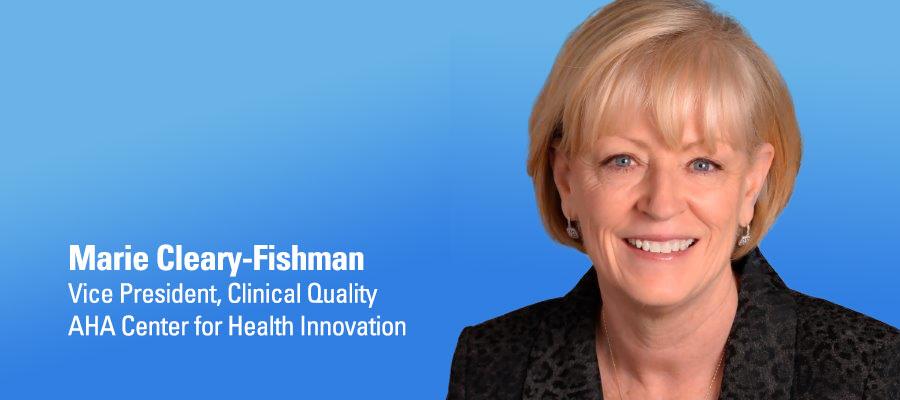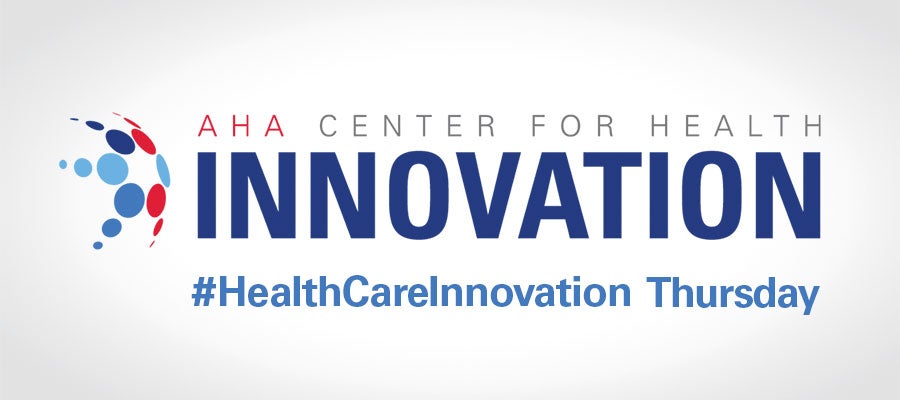Putting Age-Friendly Care Principles into Action


By Marie Cleary-Fishman
Five years ago, a national effort began to ensure that health care for older adult patients is “age friendly.” This initiative — Age-Friendly Health Systems — follows a set of evidence-based practices called the 4Ms, a framework that focuses on what matters to the patient and their care partners as well as medications, mentation and mobility. Older adult patients — age 65 and older — have complex health needs, which can make their medical care more challenging. The 4Ms framework addresses those unique care needs.
The American Hospital Association is leading its fourth Age-Friendly Health Systems Action Community this fall. During this seven-month virtual convening, hospital and health system teams receive free guidance and coaching and can access a host of resources and real-life examples on how to implement the 4Ms.
Many health care organizations have found they already provide care for older adults that aligns with one or more of the 4Ms. New work involves organizing care so all 4Ms guide every encounter with an older adult and, in many cases, their care partners.
More than 2,800 health care organizations already have been recognized as Age-Friendly Health Systems, and that number continues to grow.
Benefits of participation are many, including improved health outcomes, better patient and family satisfaction, reduced readmission rates and shorter length of stay. Hospitals and health systems that have integrated age-friendly care across their care teams are creating a culture of support and excellence.
COVID-19 Has Reinforced the Need for Age-Friendly Care
When the first case of the coronavirus was confirmed January 2019 in the U.S. — and the global pandemic quickly took hold — the Age-Friendly Health System initiative was entering its third year. The COVID-19 pandemic has reinforced the importance of delivering evidence-based age-friendly care. The virus disproportionately affected older adults and increased the burden on patients, families and health care teams. The 4Ms can reduce that kind of burden by providing an organizing framework to focus on the most critical care for older adults.
Many health care organizations have found they already provide care for older adults that aligns with one or more of the 4Ms. New work involves organizing care so all 4Ms guide every encounter with an older adult and, in many cases, their care partners.
My Personal Connection to Age-Friendly Care
I have witnessed firsthand the benefits of age-friendly care. After my father had open heart surgery, he was determined to help care for my mother, who was battling Alzheimer’s disease at the time, as well as continue tasks he enjoyed — like spending time with his grandchildren and attending their sporting events, using his riding lawn mower and playing Irish music for my mom every day. Focusing on “what matters” as well as his medications, mentation and mobility was key to care planning and successful transitions between health care settings for my dad.
Age-friendly care is an urgent need now as the population of older adults steadily climbs: There currently are more than 54 million Americans age 65 and over, and that number is projected to reach about 95 million by 2060.
The Age-Friendly Heath Systems initiative aligns with the AHA’s commitment to improve the health of people in our communities at every life stage. I hope you’ll join us to improve care for older adults and reach that goal.
Visit AHA.org/agefriendly for more information and to sign up for the AHA Action Community.
Marie Cleary-Fishman is vice president, clinical quality, at the American Hospital Association.
Age-Friendly Health Systems is an initiative of the John A. Hartford Foundation and the Institute for Healthcare Improvement, in partnership with the American Hospital Association and the Catholic Health Association of the United States.

